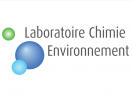Environmental Chemistry Laboratory LCE Laboratory

Working in association with the Swiss Federal Institute of Aquatic Science and Technology (Eawag), the Environmental Chemistry Laboratory (LCE) at EPFL has developed a method for detecting the novel coronavirus in wastewater samples. Their method has been tested successfully on samples collected during the first phase of the pandemic, paving the way to an early-stage warning system. The approach being taken by researchers at LCE and Eawag – until drug treatments and a vaccine are developed – is to analyze wastewater samples so that health officials can detect the virus before the disease is diagnosed clinically. “Our study looks at how we can detect the virus in wastewater and measure its concentration before people start developing clinical symptoms – and to determine how much time before,” says Tamar Kohn, head of EPFL’s Environmental Chemistry Laboratory (LCE). The potential ramifications of this study are so important that Cassi and Marie-Hélène Corre, another LCE biologist, received special authorization to work at their EPFL lab during the lockdown.
The research line, called 'Wastewater-based epidemiology of SARS-CoV-2 in Switzerland', establishes that SARS-CoV-2 is shed in the feces of infected persons one to two weeks before cases are clinically confirmed. Using samples from five large wastewater treatment plants, which jointly cover over 700,000 people, this study will monitor the dynamics of the COVID-19 outbreak in Switzerland. The data will let policy makers quickly adapt public health mitigation strategies. The team's work is of special relevance for the prevention or tracking of contagion.
The research line, called 'Wastewater-based epidemiology of SARS-CoV-2 in Switzerland', establishes that SARS-CoV-2 is shed in the feces of infected persons one to two weeks before cases are clinically confirmed. Using samples from five large wastewater treatment plants, which jointly cover over 700,000 people, this study will monitor the dynamics of the COVID-19 outbreak in Switzerland. The data will let policy makers quickly adapt public health mitigation strategies. The team's work is of special relevance for the prevention or tracking of contagion.
Technology:
COVID Labs/Universities
Industry:
COVID Research
Headquarters:
Switzerland
Founded Date:
N/A
Employees Number:
N/A
Funding Status:
N/A
Register and Claim Ownership